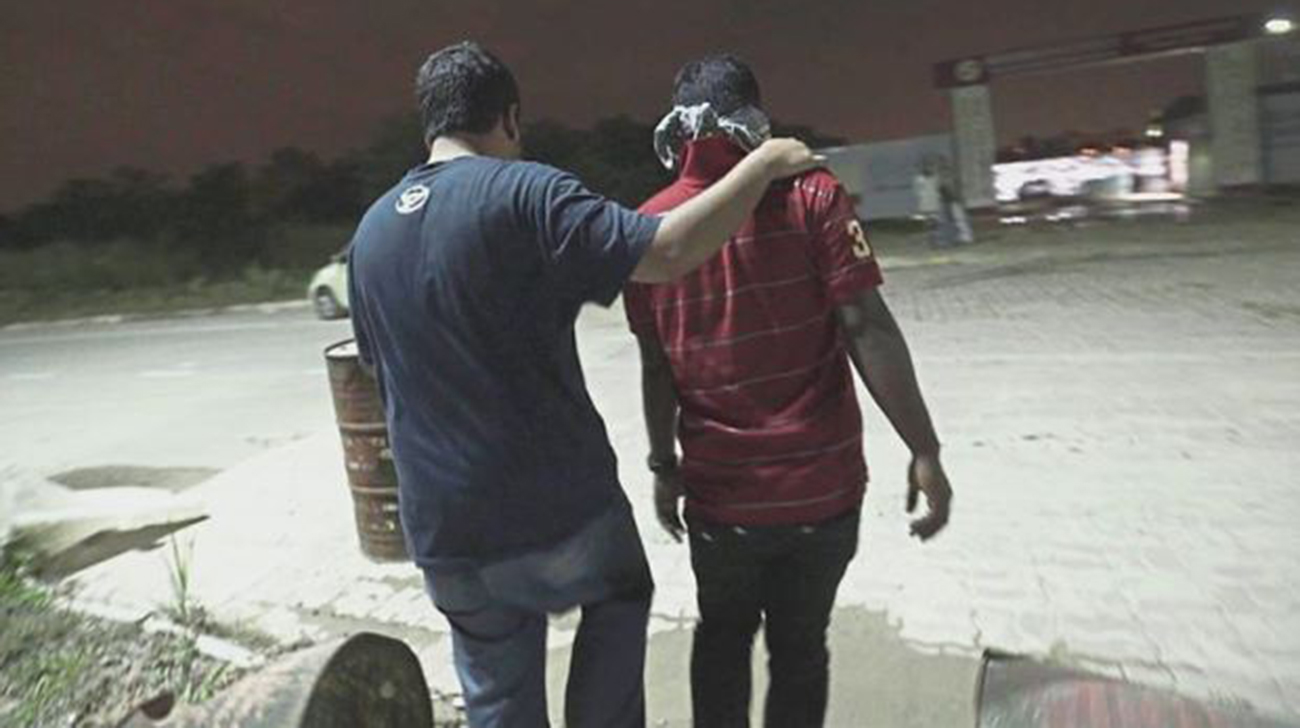Investigation follows traffickers to Bangladesh
In the middle of a bustling town in Bangladesh, two R.AGE undercover journalists hide in a van, listening in as one human trafficker after another sold their lies.
These traffickers pose as education agents, and they exploit young Bangladeshis by charging them a fortune to study in bogus colleges in Malaysia where they end up trapped, in debt, and with little choice but to work illegally under inhumane conditions.
Last year, the two journalists followed the trail of the traffickers from Malaysia all the way to Dhaka.
Armed with hidden cameras and microphones, they worked with local journalists to infiltrate these education agencies and record the bold-faced lies and empty promises they tell their victims, knowing full well they are leading most of them to years of exploitation in a foreign land.
And sadly, business is booming. The journalists found entire streets full of these agencies, and most of them offered placements in Malaysia.
One after another, the agents told the undercover journalists that working in Malaysia on a student visa is allowed, and some even offered to secure jobs for an additional fee - even though working in Malaysia on a student visa is illegal. If caught, offenders would be arrested and deported.
The undercover footage and audio recordings from the investigations were released today as part of the third and final episode of Student/Trafficked, the R.AGE series launched in August 2017.
The series and its subsequent public action campaign has already made an impact, with the Home Affairs Ministry and Higher Education Ministry both openly pledging to stamp out student trafficking.
While neither ministry could be reached for details about what action has been taken, word on the ground is that regulations for international students have tightened significantly.
"The Malaysian government has not been issuing visas to colleges for the past year," said Abdur Rahim Khan, CEO of Bangladesh Malaysia Study Centre (BMSC). BMSC is one of the more established student recruitment agencies in Bangladesh, and specialises in sending students to Malaysian higher education institutions.
"This is good, because college students don't go to Malaysia to study - only university students do," he claimed.
The main focus of the latest episode of Student/Trafficked, however, is a love story.
Pari (not her real name), 22, is a recent victim of these traffickers. She and her husband paid an agent around RM30,000 (equivalent to over 3 years' wages in Bangladesh) to study accountancy in a Malaysian college.
When they arrived, they quickly realised the college was a sham.
"There were no classes," she said. "That place was full of agents only. They are cheating people. I saw that they had a lot of money with them."
Worse was to come, as the college pressured Pari and her husband to take up a "paid internship" at a restaurant. According to Pari, the restaurant paid a salary of RM2,000, but the college kept as much as RM1,200 for itself.
Last year, while Pari returned to Bangladesh to care for her sick father, her husband was arrested.
"I was crying, crying and crying. I was here and I couldn't do anything," said Pari.
"I'm just waiting for when he comes back, so we can make other plans. We're hoping that our visas will not be blacklisted, otherwise all our money will be gone," she said, adding that she still hopes to return to Malaysia.




Comments